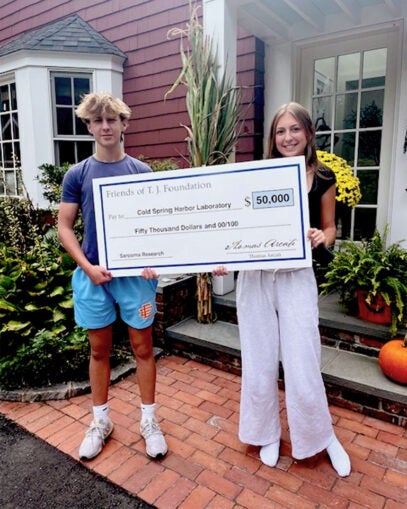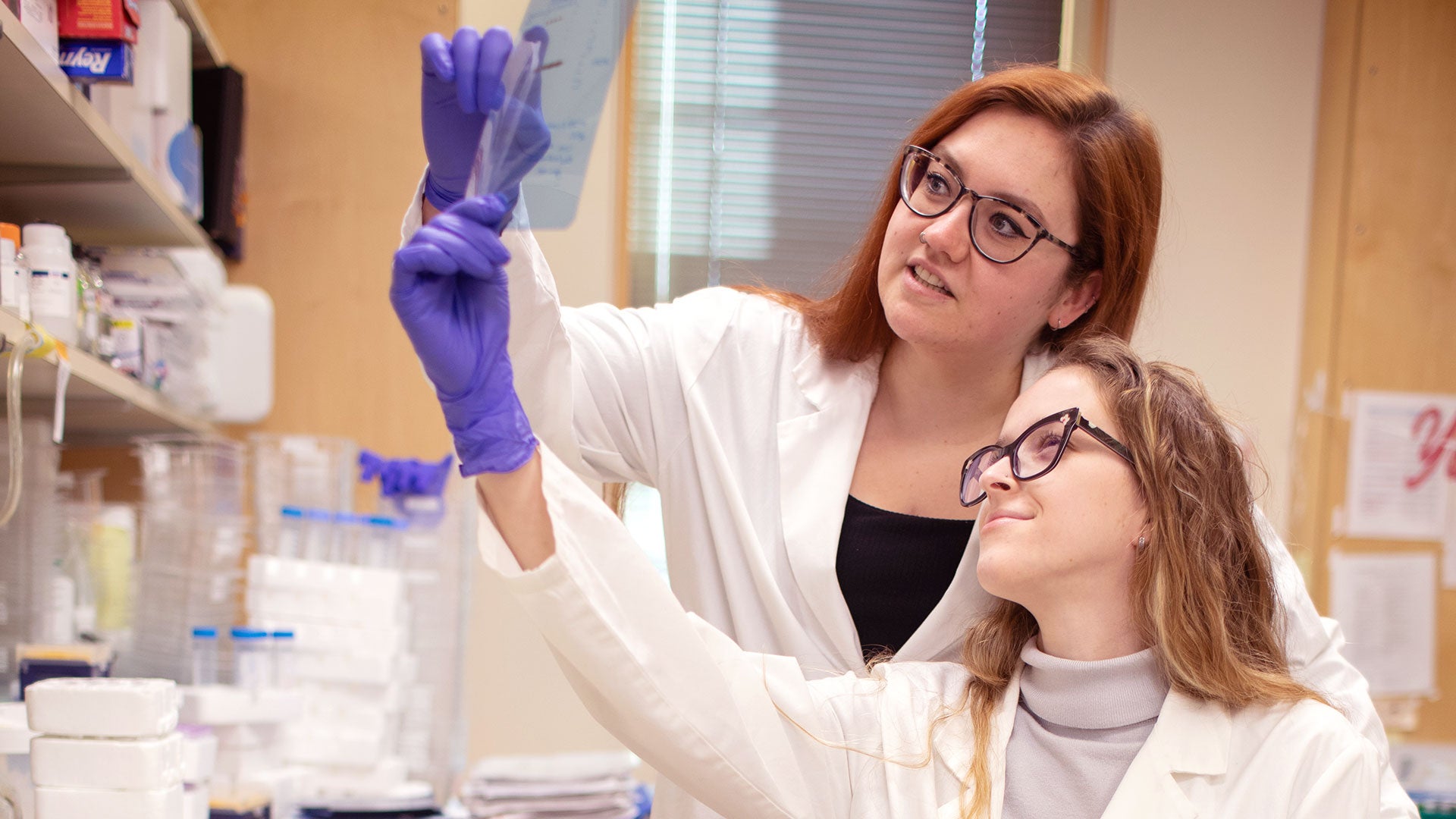It’s more common in children, but when diagnosed in adults, it’s far more deadly. Rhabdomyosarcoma (RMS) is a cancer of the soft tissue—muscle, fat, tissues, tendons, nerves, or even blood vessels. We often think of it as a pediatric cancer, but that’s not the whole story. Sometimes, it strikes later in life. Such was the case with T.J. Arcati, a father of two and late founder of the Friends of T.J. Foundation.
When he founded the organization, his main focus was getting well. Someday, he’d hoped to support research into rare forms of cancer like RMS. But his first priority was being there for his wife, Heidi, and their children, Hadley and Hunter. Tragically, T.J. Arcati lost his battle just four years after his diagnosis. He was 35. Since then, the Arcati family has joined with others in the sarcoma community to ensure that scientists studying RMS get the funding they need to continue their work.

Earlier this year, Hunter and Hadley Arcati proudly presented Cold Spring Harbor Laboratory (CSHL) with a check for $50,000. Over the past decade, CSHL has led the search for new therapeutic strategies that may someday be deployed against RMS and other sarcomas. The call for action came at a 2014 Banbury Center meeting. The Friends of T.J. Foundation was one of several local groups that funded the gathering.
CSHL recently spoke with the Foundation’s CEO, T.J.’s father, Tom Arcati, about his son’s legacy. “Our hopes and dreams for finding better treatments and outcomes for sarcoma patients pale in comparison to a young person’s struggle when they are faced with an unimaginable situation only to hear about a lack of research,” Arcati says.
That is why, over the past 10 years, the Friends of T.J. Foundation has donated more than $500,000 to support the work of CSHL Professor Christopher Vakoc. This funding has yielded several significant breakthroughs, including remarkable advances in RMS and Ewing sarcoma research.
“T.J.’s love of life, family, and friends will have an everlasting impact on the community,” Arcati says. “In return, CSHL and all who knew T.J. are generously trying to solve the problem and find answers to the complex questions T.J. had. We will all continue where he left off.”
